Table of Contents
Quality Service Guarantee Or Painting Free

Get a rental agreement with doorstep delivery

Find the BEST deals and get unbelievable DISCOUNTS directly from builders!

5-Star rated painters, premium paints and services at the BEST PRICES!
Loved what you read? Share it with others!


Submit the Form to Unlock the Best Deals Today
Help us assist you better
Check Your Eligibility Instantly

Experience The NoBrokerHood Difference!
Set up a demo for the entire community
The House Construction Agreement: The Key to a Successful Dream Project
Table of Contents
Constructing a new home is a sizable financial commitment that calls for meticulous preplanning and coordination and a rock-solid legal basis. Therefore, it is essential to have a house construction agreement carefully drafted to safeguard the interests of both the homeowner and the contractor and ensure that the work is carried out without a hitch.
In this article, you will learn about the importance of a house construction agreement, its key components, and the different types of agreements. Additionally, the article guides creating a house construction quotation and a sample agreement template to help you confidently embark on your construction project.
What is a House Construction Agreement?
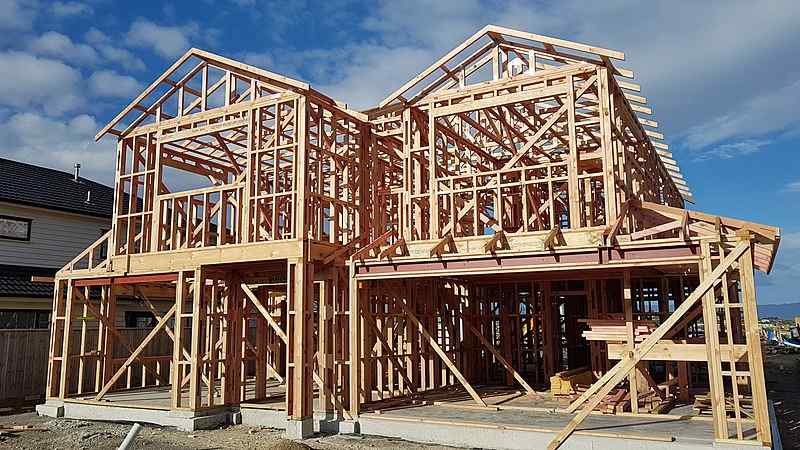
A home construction agreement is a legally binding document that communicates the terms and conditions of a construction project between a homeowner and a contractor. This document is known as a "house construction agreement." This important agreement serves several important purposes, including ensuring that the building process goes smoothly and protecting the interests of both parties involved.
Quality Service Guarantee Or Painting Free

Get a rental agreement with doorstep delivery

Find the BEST deals and get unbelievable DISCOUNTS directly from builders!

5-Star rated painters, premium paints and services at the BEST PRICES!
The scope of the project, location, work specifications, materials, and quality of craft, are all defined very specifically in the agreement. Therefore, it is possible to reduce the likelihood of disagreements and misunderstandings occurring during the building process if all parties involved in the project have a clear understanding of the requirements and expectations of the project.
The payment terms are another essential component of a contract to construct a house. Financial disagreements between the homeowner and the contractor, which could slow down the project's progress, can be avoided if the terms and schedule of payment are clearly outlined.
The risks that are normally associated with building projects can also be reduced through the use of a properly drafted house construction agreement. It does this by defining the rights and obligations of both parties, thereby ensuring that each side is accountable for the responsibilities that fall under their purview.
If there is a disagreement or a breach of contract, the agreement regarding the house construction can be used as a foundation for legal action and resolution. In addition, it offers a structure for dealing with problems that may crop up during the project, such as delays, change orders, or warranty claims.
Importance of a House Construction Agreement
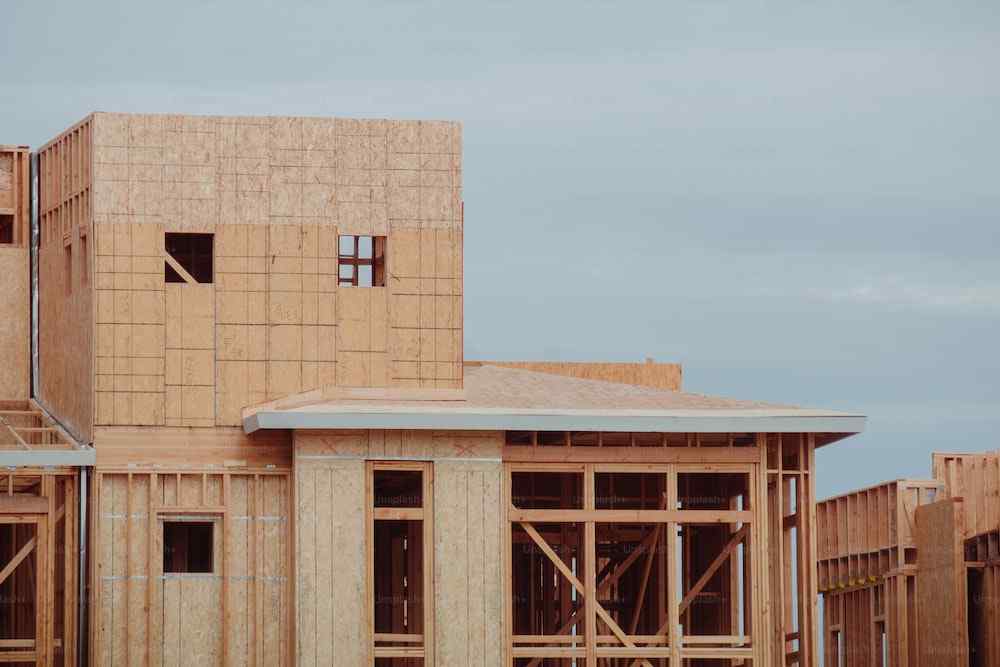
The importance of a house construction agreement must be balanced when embarking on a construction project. As a legally binding document between the homeowner and the contractor, the agreement serves as a foundation for a successful project by providing clarity, protecting interests, and mitigating risks.
- Clarity and mutual understanding
Location, design, materials, and quality of construction are just some of the aspects of a home-building project that should be specified in detail in the contract. The agreement ensures that all parties are on the same page by outlining the scope of the project and their respective responsibilities.
By reducing the likelihood of disagreements and miscommunications occurring during building, everyone involved can save time, energy, and money.
- Protecting interests
The homeowner and the builder can rest easy knowing their interests will be protected by a well-thought-out home construction agreement. In doing so, it ensures that all parties are held to account for their commitments by outlining their respective rights and obligations.
The parties' mutual interests are safeguarded in the contract, laying the groundwork for trust essential to the completion of any building project.
- Establishing payment terms
Conflict on construction sites regarding financial matters often stems from disagreements over money. By outlining the payment schedule and terms in detail, a house construction agreement helps reduce the likelihood of disputes arising during construction.
In addition, the agreement aids in ensuring that the parties are on the same page financially by outlining the payment method, due dates, and any penalties for late payments.
- Mitigating risks
There is always a chance that a construction project will run over budget, over schedule, or have other quality control problems. A written home construction agreement that lays out the terms and conditions of the project and includes clauses for change orders, warranty claims, and dispute resolution can help reduce these dangers.
In addition, the agreement's focus on foreseeing and mitigating potential risks should help keep construction on schedule and trouble-free.
- Legal recourse
In the event of a dispute or breach of contract, a house construction agreement serves as a basis for legal action and resolution. By providing a legal framework for addressing issues that may arise during the project, the agreement helps to ensure that both parties have recourse to seek a resolution.
This legal protection is essential for both homeowners and contractors, as it ensures that their respective rights are upheld and that they have the means to address any grievances that may arise during the project.
- Professionalism
Both parties' professionalism and dedication to the project are on display in a well-written home construction agreement. It shows that the homeowner and the contractor take their roles seriously and are dedicated to completing the project successfully. With this professionalism, you can build trust and create a pleasant working environment that benefits both of you.
Key Components of a House Construction Agreement
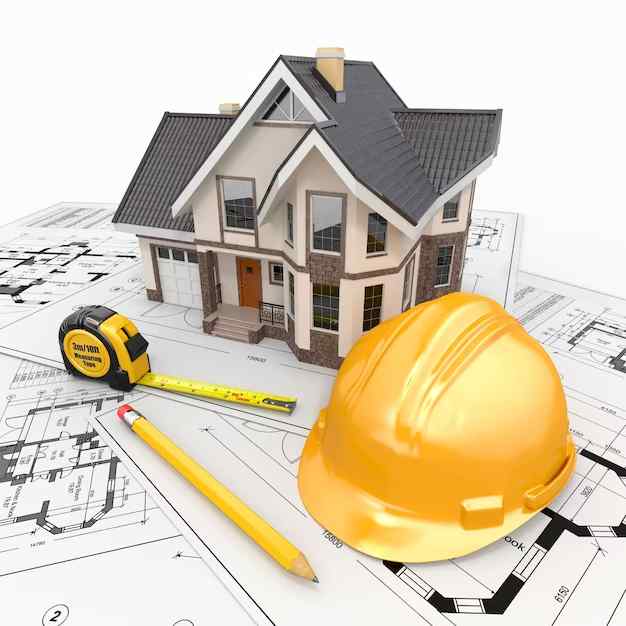
To ensure a solid foundation for your construction project, it is essential to include specific key components in the house construction agreement between the owner and the contractor.
- Project Details: The agreement should clearly define the project's location, the scope of work, and specifications, including the materials used, the artistry quality, and unique features or requirements.
- Contractor Details: This section should include the contractor's name, address, and contact information, as well as any relevant licences, qualifications, or certifications.
- Schedule: The agreement should outline the project timeline, including milestones, completion dates, and any penalties for delays.
- Payment Terms: Clearly define the payment schedule, including the total contract amount, down payment, progress payments, and the final payment. Specifying the payment method and any late payment penalties is also essential.
- Change Orders: The agreement should establish a process for handling changes to the project scope, including approvals, cost adjustments, and schedule modifications.
- Warranty: Include a warranty clause outlining the contractor's responsibility to rectify defects in quality or materials within a specified period.
- Termination: Specify the conditions under which either party may terminate the agreement, such as breach of contract, insolvency, or failure to meet performance expectations.
- Dispute Resolution: The agreement should define the process for resolving disputes, such as mediation, arbitration, or litigation.
- Governing Law: State the governing law applicable to the agreement and the jurisdiction for any legal disputes.
- Signatures: The agreement must be signed by the homeowner and the contractor, with each party retaining a copy for their records.
Types of House Construction Agreements
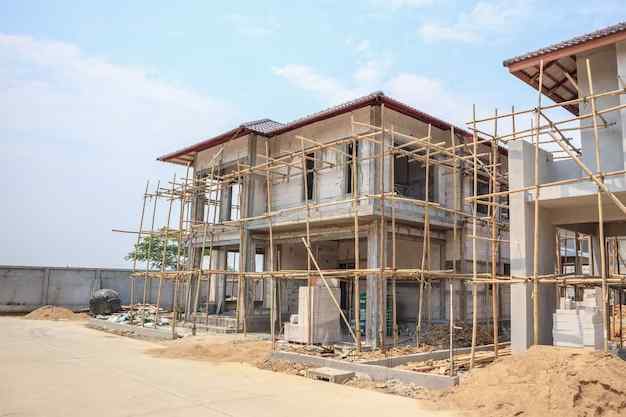
There are several types of house construction agreements, depending on the nature of the project and the relationship between the owner and the contractor.
Labor Contract Agreement for Construction of House
Worker conditions are prioritised in this type of contract. Details about the workforce to be employed, their responsibilities, and their compensation are spelt out, as are the terms and conditions between the homeowner and the contractor.
The homeowner typically provides the project's materials in exchange for the contractor's assurance that the work is completed per the terms of the contract. If you're a homeowner wanting more say in your renovation, this agreement is for you.
Agreement for Construction of House with Material
The scope of this contract extends to the provision of both labour and materials. The contractor is responsible for providing all necessary materials and labour to complete the project according to the agreed-upon specifications.
A comprehensive list of materials, quality, and quantities is typically included in such an agreement for clarity and open communication about the project. Homeowners who want the contractor to handle every aspect of their building project should consider this type of contract.
Agreement with Contractor for Construction of House
This contract covers everything from initial conceptualisation to final clean-up. In most cases, a general contractor will coordinate the efforts of everyone involved in the construction process.
The contractor's obligations, terms of payment, and project details are all laid out in the contract. Homeowners who prefer to delegate all aspects of their construction project to the contractor and want a single point of contact should consider a design-build contract.
Turnkey Construction Agreement
The contractor in a turnkey construction agreement takes full responsibility for delivering the completed project to the homeowner. In this model, the contractor is responsible for every process stage, from conceptualisation to execution to quality control.
The house is now ready for the owner to "turn the key" and move in. Turnkey agreements are the way for homeowners who would rather not get their hands dirty during construction.
Creating a House Construction Quotation

Before finalising the house construction agreement, the contractor usually provides a detailed quotation outlining the project's estimated costs. The quotation should be clear, concise, and include the following elements.
- Project description: A summary of the project's scope and specifications.
- Itemised costs: A detailed breakdown of the project's materials, labour, and other expenses.
- Taxes and fees: Include applicable taxes and fees, such as permits or inspections.
- Payment terms: State the payment schedule, including down payments, progress payments, and the final payment.
- Validity period: Indicate the time frame for which the quotation is valid, typically 30 to 60 days.
Sample Agreement for Construction of House
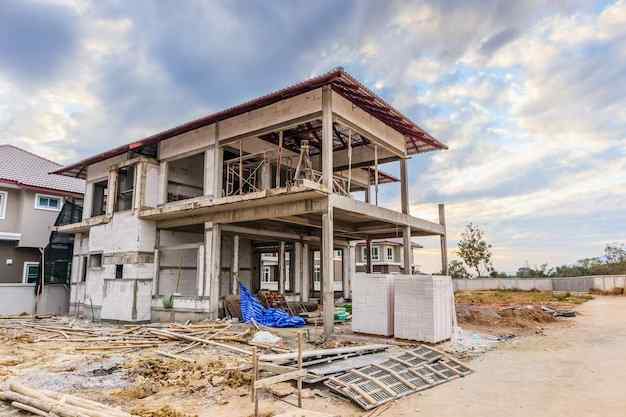
To ensure a solid foundation for your construction project, it's crucial to have a well-drafted house construction agreement. Here is a sample agreement template that you can use as a starting point.
[Homeowner's Name]
[Homeowner's Address]
[City, State, Zip Code]
[Date]
[Contractor's Name]
[Contractor's Address]
[City, State, Zip Code]
Re: House Construction Agreement
Dear [Contractor's Name],
This House Construction Agreement (the "Agreement") is entered into as of [Date], by and between [Homeowner's Name] ("Homeowner") and [Contractor's Name] ("Contractor"), collectively referred to as the "Parties."
Scope of Work: The Contractor agrees to perform the construction work (the "Work") described in Exhibit A, attached hereto and incorporated by reference.
Contract Price: The Homeowner agrees to pay the contractor a total contract price of [Amount] (the "Contract Price"), subject to adjustments as provided in this agreement.
Payment Terms: The Homeowner shall make payments to the contractor as follows.
- Down Payment: [Amount] upon execution of this agreement.
- Progress Payments: [Amount] upon completion of each milestone as outlined in Exhibit B, attached hereto and incorporated by reference.
- Final Payment: [Amount] upon completion of the Work and receipt of all required lien releases, warranties, and other documentation.
Schedule: The Contractor shall commence the Work on [Start Date] and complete the Work on or before [Completion Date], subject to adjustments as provided in this agreement.
Change Orders: Any changes to the scope of Work, Contract Price, or Schedule shall be subject to a written change order signed by both Parties.
Warranty: The contractor warrants that the Work shall be free from defects in artistry and materials for a period of [Warranty Period] from the completion date.
Termination: Either Party may terminate this agreement upon [Number of Days] written notice if the other Party breaches any material term or condition of this agreement.
Dispute Resolution: Any disputes arising out of or relating to this agreement shall be resolved by [Mediation/Arbitration/Litigation] following the laws of [Governing Law and Jurisdiction].
Entire Agreement: This Agreement, together with all exhibits, constitutes the entire agreement between the Parties and supersedes all prior agreements, understandings, and representations, whether written or oral.
IN WITNESS WHEREOF, the Parties have executed this Agreement as of the Date first above written.
[Homeowner's Name] [Contractor's Name]
Homeowner Contractor
Exhibit A: Scope of Work
[Detailed Description of Project]
Exhibit B: Schedule and Milestones
[Milestones and Completion Dates]
Any home-building project will benefit greatly from a professionally drafted house construction agreement. A well-drafted contract can protect your investment and ensure a smooth construction process by outlining the roles of the homeowner and the contractor.
Before beginning a construction project, familiarising yourself with the different kinds of agreements, the parts that make them up, and the best methods for laying solid legal groundwork is important.
NoBroker can assist you in finding trustworthy contractors, give legal counsel, offer customisable templates, and offer conflict resolution services. These services may be quite helpful in making sure that your house-building agreement is thorough, enforceable, and satisfies all of your criteria.
FAQ's
Ans. A house construction agreement is a legally binding document that outlines the terms and conditions of a construction project between the homeowner and the contractor. It protects the interests of both parties and provides a clear understanding of the project scope, payment terms, and other crucial details.
Ans. An essential part of any home construction project is the agreement between the builder and the homeowner that details the parameters of the job, how payment will be made, any risks that either party will take, and the procedures to be followed in the event of a disagreement.
Ans Project information, contractor information, timeline, payment terms, change orders, warranty, termination, dispute resolution, governing law, and signatures are all essential components of a house construction agreement.
Ans. Some common types of house construction agreements are the labour contract agreement for the construction of a house, the agreement for the construction of a house with material, the agreement with the contractor for the construction of a house, and the civil contract agreement.
Ans. Create a quotation for home construction by outlining the scope of the work, the total price, any applicable taxes or fees, the terms of payment, and the time the estimate is valid. Ensure the quotation is easy to understand and includes a comprehensive breakdown of the costs.
Recommended Reading

All You Need to Know About Property Disputes and How to Avoid Them
January 16, 2025
5419+ views
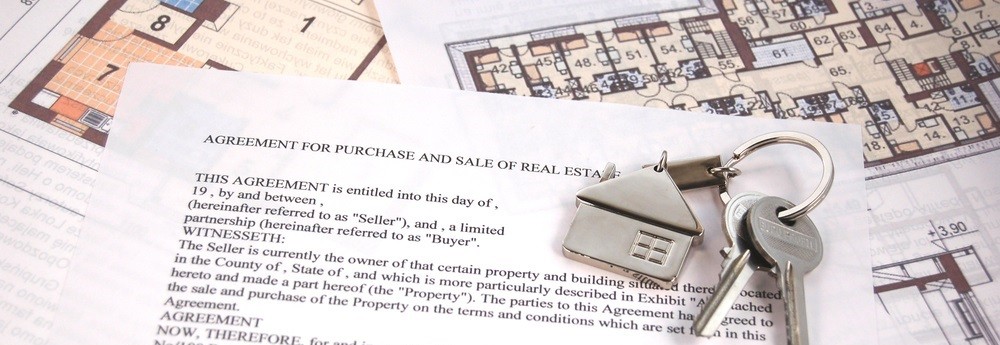
Legal Documents You Need To Buy And Sell Property: Essential Guide
January 15, 2025
10963+ views

Non-Occupancy Charges: A Guide for Property Owners and Tenants
December 31, 2024
9233+ views

Franking Charges Explained: Meaning and Benefits
December 31, 2024
1046382+ views

A Comprehensive Guide to E Stamp and E Stamping Process
December 30, 2024
15811+ views
Loved what you read? Share it with others!
Most Viewed Articles

Franking Charges Explained: Meaning and Benefits
December 31, 2024
1046382+ views

What is the BBMP E-Khata Registration process for property owners in Bangalore, Karnataka in 2025?
January 16, 2025
78677+ views

Supreme Court Verdict on Society Maintenance Charges
December 17, 2024
70553+ views

All You Need to Know about Revenue Stamps
December 17, 2024
59404+ views

Stamp Duty and Registration Charges in Bangalore in 2025
January 23, 2025
51822+ views
Recent blogs in
Stamp Duty and Property Registration Charges in Mumbai 2025
January 23, 2025 by Kruthi
What are the current Stamp Duty and Property Registration Charges in Karnataka for 2025?
January 23, 2025 by Prakhar Sushant
Stamp Duty and Registration Charges in Bangalore in 2025
January 23, 2025 by Vivek Mishra




Join the conversation!